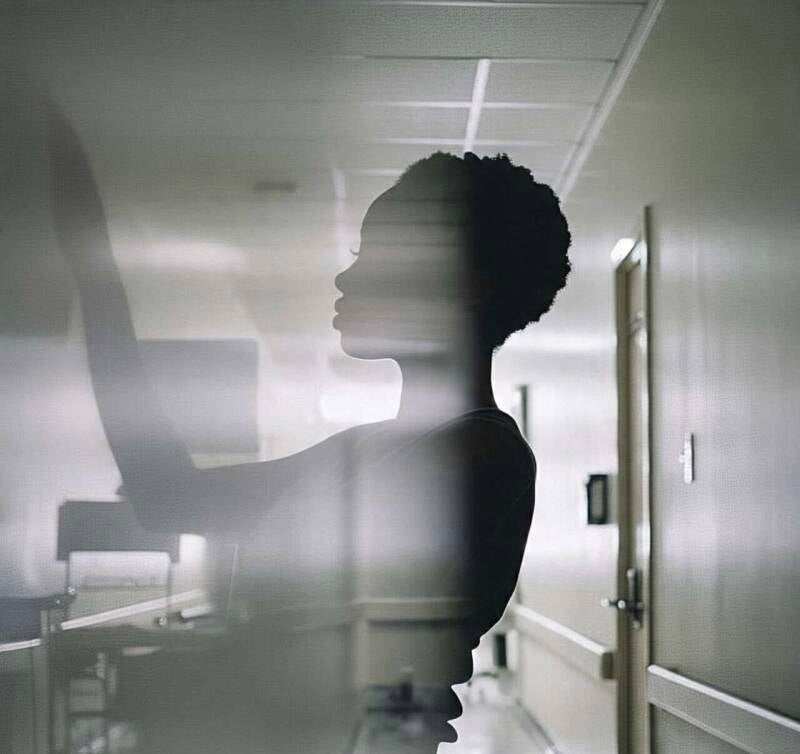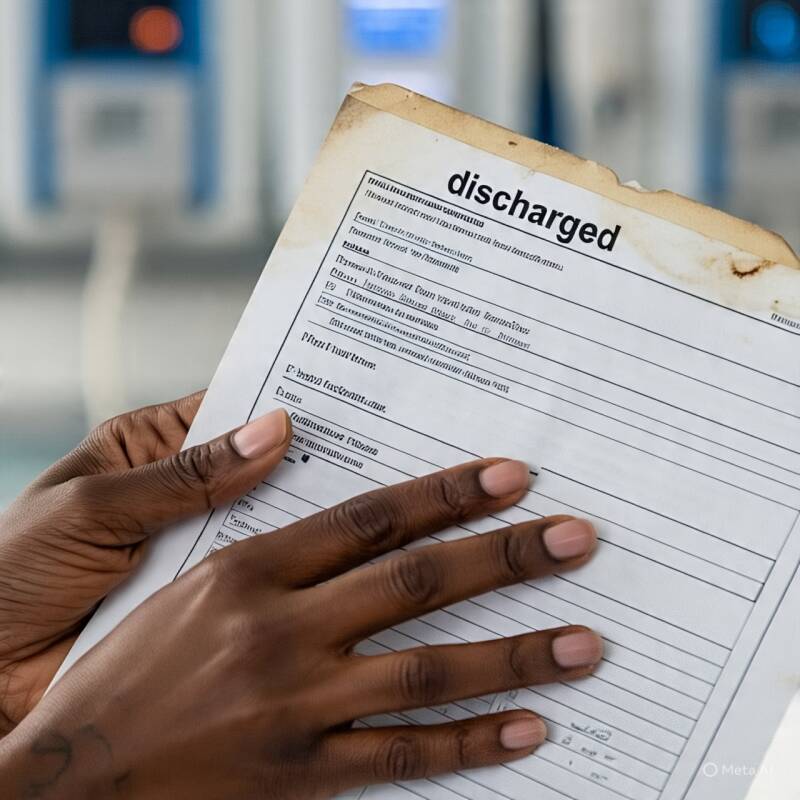
I am not Black. I’m a Pakistani woman, born into a body and a world that understands struggle but not in the way Black women do in Western healthcare systems. This post is not about me—it’s about what I see, what I can’t ignore, and what I refuse to be silent about any longer.
If you’re reading this and already bracing yourself, good. You should be. Because what I’m about to share isn’t comfortable. It’s ugly, painful, and a reflection of what happens when racism, misogyny, and white supremacy converge in an exam room. What happens when a Black woman says, “I’m in pain,” and no one listens—until it’s too late.
Black women in the United States are three to four times more likely to die during childbirth than white women. Not because of biology. Not because of poverty. Because they are not believed. They are silenced, dismissed, told to wait. Their pain is minimized. Their bodies are disrespected. Their lives are treated as disposable.
We’ve lost so many, and the world barely blinked.
Dr. Chaniece Wallace, an Indiana pediatric chief resident, died in 2020 just days after giving birth due to preeclampsia complications doctors didn’t manage aggressively enough. She knew what was happening. She said something. She died anyway.
Kira Johnson, who walked into Cedars-Sinai healthy and glowing, bled internally for 10 hours after a C-section. Her husband begged for help. Nurses ignored her. She was 39. Her son will never know her laugh.
Shalon Irving, a CDC epidemiologist who studied how race affects health outcomes, died from complications of high blood pressure weeks after giving birth. She knew the risks. She was an expert. Her providers didn’t take her symptoms seriously. She was 36.
Amber Rose Isaac tweeted about her mistreatment at a Bronx hospital just days before she died during childbirth. She knew she wasn’t safe. Her instincts were ignored. Her boyfriend had to watch her die giving birth to their first child.
Tashonna Ward, 25, went to the ER for chest pain. She waited hours without being seen. She died of cardiac arrest in the waiting room. She’d posted on Facebook, “I’m still not seen. I’ve been here for hours.” She knew something was wrong. And she died waiting.
Erica Garner, the daughter of Eric Garner, collapsed at 27 from a heart attack shortly after giving birth. Her body, already ravaged by grief, was failed by a system that never offered her proper care or support. She left behind two children.

Adriana Smith should be alive and free—not reduced to a womb on life support. In February 2024, the 30-year-old nurse and mother was declared brain dead after experiencing severe headaches. But because she was 12 weeks pregnant, the state of Georgia stepped in. Against her family’s wishes, Adriana has been kept on a ventilator for months, her body used as an incubator while her mind, her soul, her life is gone. This isn’t healthcare—it’s horror. It’s The Handmaid’s Tale unfolding in real time. Her mother is forced to sit beside a breathing corpse, her grandson visiting a woman he thinks is simply sleeping, and the state has decided they don’t deserve a choice. Adriana’s story isn’t just tragedy—it’s state-sanctioned misogynoir, where a Black woman’s death becomes a vessel for forced birth. And this cruelty is completely legal.
Shereese Floyd was a vibrant, 33-year-old Black woman and mother from Texas who died in April 2022 after her repeated pleas for help were ignored. She had visited the emergency room multiple times complaining of severe abdominal pain and was repeatedly sent home, her symptoms dismissed. Eventually, it was discovered that Shereese had a large fibroid and internal bleeding — far too late. She died on her bathroom floor, alone, with her children nearby. Her story is a gut-wrenching example of how Black women are not taken seriously, even when they are in visible, unbearable pain. Had her symptoms been taken seriously earlier, her life might have been saved. Instead, she became yet another name on the growing list of Black women who died preventable deaths.
Sha-Asia Washington was just 26 years old, excited to become a mother. On July 3, 2020, she went to Brooklyn’s Woodhull Hospital for a routine stress test during her 39th week of pregnancy. Instead of giving her time or listening to her concerns, medical staff pressured her into an induction and later gave her an epidural. Minutes later, she went into cardiac arrest. She died during an emergency C-section. Her baby girl survived; Sha-Asia did not. Her partner Elijah was left to grieve a woman who should be here, raising her daughter. Her death sparked protests in New York, as her story became a rallying cry for the ongoing Black maternal health crisis. She didn’t die of complications — she died because no one stopped to ask if this was right for her.

These women are not exceptions. They are the rule. Ask any Black woman—she’ll likely tell you a story about being brushed off in an ER, being misdiagnosed, being labeled “noncompliant,” being told she’s exaggerating, being denied the basic right to be believed.
As a Pakistani woman, I know what it’s like to be doubted in a clinical setting. I’ve had doctors look past me, interrupt me, or suggest it’s all in my head. But even in those moments, I’m aware that my beige skin doesn’t carry the same burden as Blackness in America. I am not treated as a threat. My voice, though sometimes ignored, is not silenced in the same way.
This is where our solidarity matters. When we say Black Lives Matter, it cannot be just about police brutality. It must also be about hospitals, birth rooms, neurology clinics, and waiting rooms. It must be about the invisible ways Black women are left to die—with a wristband, a chart, and a prayer.
And yet again, a Black woman had to be publicly dehumanized before we took notice. We must ask: Why does it always take death for people to care?
Being a woman of color means navigating systems that were never built for us. But for Black women, that navigation often comes with a death sentence. They are over-medicated or under-treated. They are infantilized or criminalized. They are everything but trusted.
We need to change the narrative. Not just with hashtags or headlines, but with policy, pressure, and protection. Demand implicit bias training in hospitals. Fund Black maternal health initiatives. Support Black-led organizations. Elevate Black women’s voices in medicine. Listen to them. Believe them. Fight for them like your life depends on it—because one day, it just might.
If you’ve read this far, let it sit with you. Don’t just scroll past another name. Say them. Remember them. Tell their stories. Chaniece. Adriana. Kira. Shalon. Sha-Asia. Shereese. Amber. Chaniece. Erica. Tashonna. The list shouldn’t be this long. And it should never grow longer. Not on our watch.
Add comment
Comments